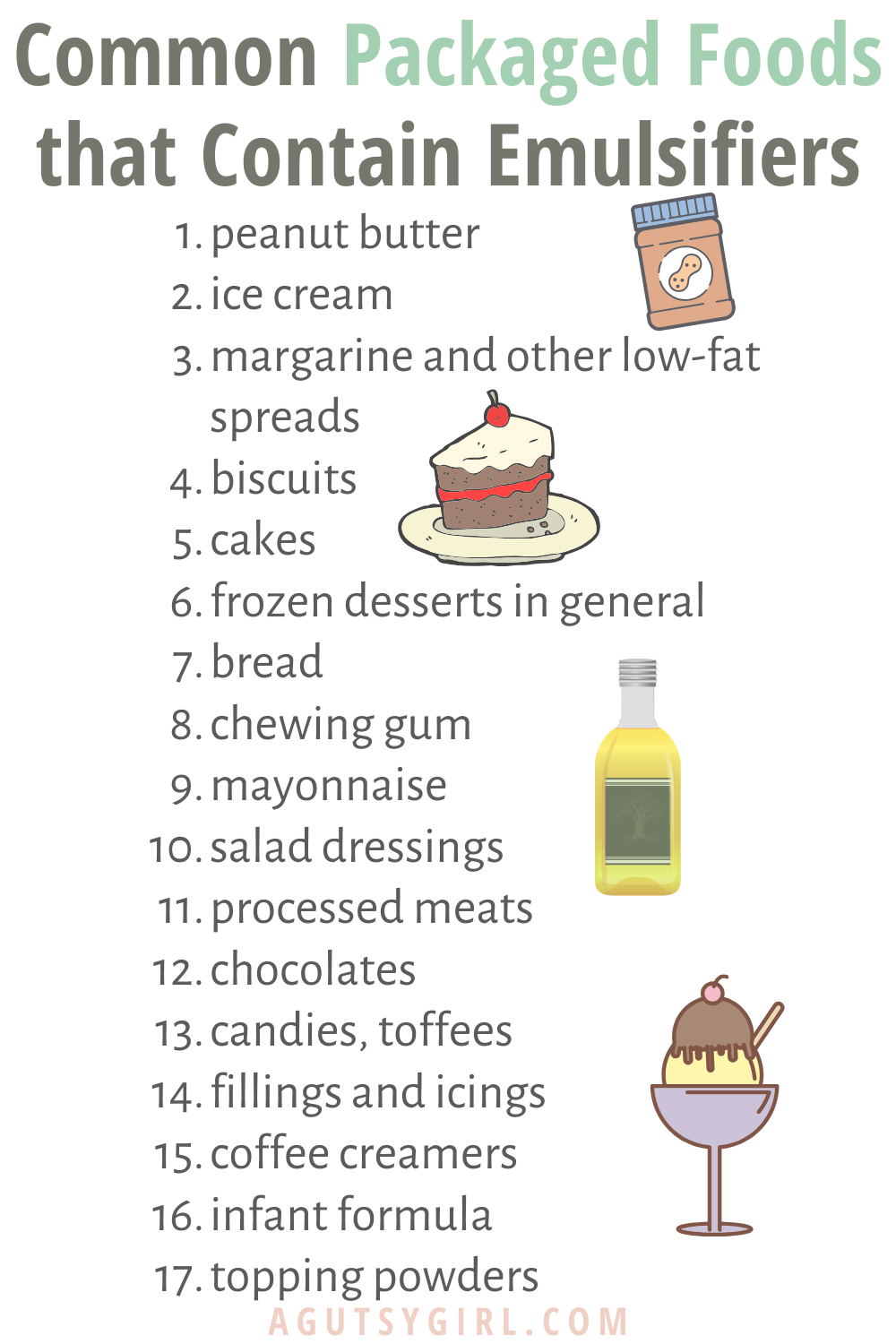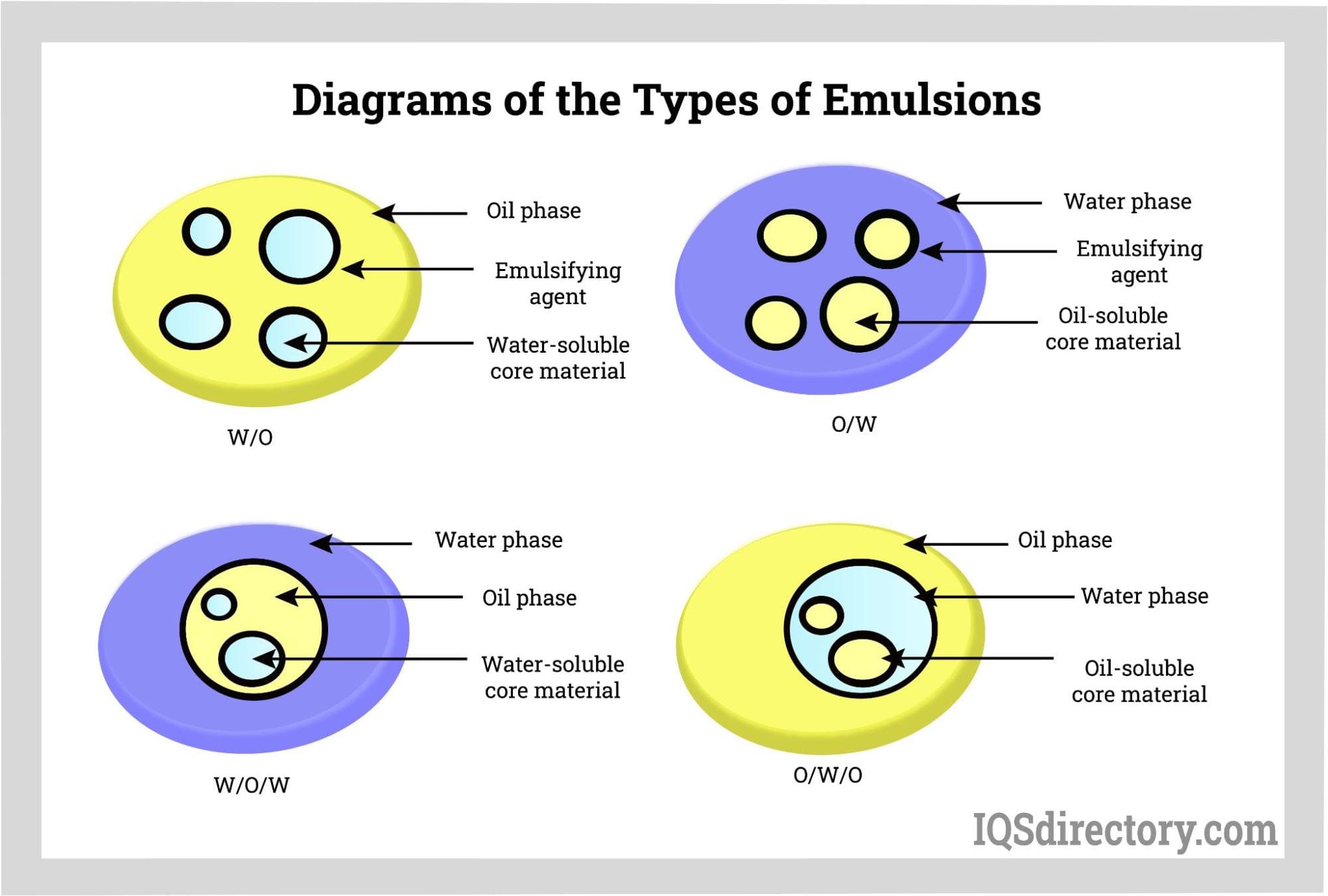Emulsifiers and Product Innovation: Why They’re at the Core of R&D
Emulsifiers and Product Innovation: Why They’re at the Core of R&D
Blog Article
The Science Behind Emulsifiers and Their Importance in Modern Manufacturing
Emulsifiers play an essential duty in modern production, acting as the unsung heroes that mix oil and water for a large array of items. As consumer choices shift in the direction of cleaner tags, the need for innovative emulsifiers is growing.
What Are Emulsifiers?
Emulsifiers are crucial agents in the globe of food and product production, acting as the glue that binds 2 otherwise immiscible fluids, like oil and water. Typical examples include lecithin found in egg yolks and soybeans, and mono- and diglycerides made use of in various refined foods.

When you whip up a salad dressing or indulge in a creamy treat, emulsifiers aid keep that ideal texture. Without emulsifiers, several foods would divide, leading to unwanted appearances and flavors.
The Chemistry of Emulsification
When you blend oil and water, you might observe they don't mix quickly; that's where the chemistry of emulsification enters into play. Emulsification occurs when little beads of one fluid disperse in an additional, developing a steady mix. This happens since oil and water are immiscible as a result of their differing polarities-- water is polar while oil is non-polar. To conquer this obstacle, emulsifiers are used.
These molecules have a hydrophilic (water-attracting) head and a hydrophobic (water-repelling) tail. When you add an emulsifier, its particles position themselves at the oil-water interface, decreasing surface area tension and enabling the beads to mix. The emulsifier forms a safety layer around each droplet, stopping them from coalescing back into separate layers. Understanding this chemistry is important for attaining stability in items like dressings, lotions, and sauces, making emulsification vital in contemporary production.
Kinds Of Emulsifiers
Different kinds of emulsifiers play essential functions in stabilizing mixes of oil and water. All-natural emulsifiers, like lecithin from egg yolks or soy, are derived from plants and animals, making them preferred in food items.
On the other hand, artificial emulsifiers, such as mono- and diglycerides, are chemically engineered to boost stability and service life. They're commonly used in processed foods and aesthetic items.
Furthermore, you might find non-ionic, anionic, and cationic emulsifiers, each with unique residential or commercial properties that influence their performance. Non-ionic emulsifiers, for example, job well in a wide range of pH degrees, while anionic emulsifiers often tend to do far better in alkaline problems. Understanding these types can assist you select the appropriate emulsifier for your certain application.
Mechanisms of Emulsion Formation
Recognizing exactly how solutions create is crucial for creating stable mixes of oil and water. Solutions take place when you distribute little beads of one liquid into another immiscible fluid, such as oil in water. This procedure calls for energy, often supplied with agitation or mixing. When you introduce an emulsifier, it decreases the surface area tension between the two fluids, allowing them to blend more quickly.
The emulsifier molecules have a hydrophilic (water-attracting) head and a hydrophobic (oil-attracting) tail. When you include an emulsifier, these particles prepare themselves at the oil-water user interface.
Applications of Emulsifiers in Various Industries
Emulsifiers play a vital duty throughout different industries, making your favorite foods smoother and more pleasurable. In cosmetics, they improve item appearance and security, making certain an enjoyable application experience. And also, in drugs, they help deliver essential active ingredients properly, improving total effectiveness.
Food Sector Uses
While you might not realize it, emulsifiers play an essential function in the food industry, enhancing the texture, security, and service life of lots of products (Emulsifiers). They're typically found in salad dressings, sauces, and mayo, aiding to blend oil and water for a smooth, consistent product. In baked goods, emulsifiers improve dough handling and keep wetness, leading to a better texture and expanded quality. They're additionally vital in milk items, where they stabilize solutions in creams and ice creams, avoiding separation. Even in snacks, emulsifiers aid preserve crunchiness and stop stale flavors. By making sure uniformity and quality, emulsifiers are significant to providing the tasty items you delight in on a daily basis, making them an important active ingredient in modern food production.
Cosmetic Formulas Benefits
When it comes to aesthetic solutions, emulsifiers are vital right here for developing items that really feel elegant and carry out effectively. You'll notice that emulsifiers boost product security, avoiding separation and lengthening shelf life. On the whole, emulsifiers play an important function in supplying premium cosmetic items that satisfy your elegance needs.
Pharmaceutical Applications Review
In the pharmaceutical market, emulsifiers are crucial for formulating efficient medications. They aid create stable mixtures of oil and water, ensuring that energetic components are equally distributed and conveniently absorbed by the body. You'll find emulsifiers in different dosage types, like lotions, ointments, and fluid suspensions, enhancing the bioavailability of drugs. They likewise boost the structure and security of products, making them extra appealing and easier to use.
The Impact of Emulsifiers on Product Quality

By making sure steady solutions, you minimize the threat of putridity and extend service life, inevitably saving you money and time. You'll additionally find that emulsifiers can boost the bioavailability of energetic ingredients in your products, making them extra efficient for customers.
In addition, they allow you to produce cutting-edge formulas that fulfill varied consumer needs. Whether you're crafting a luscious dressing or a glamorous lotion, emulsifiers are vital for accomplishing the preferred outcomes. Simply put, by understanding Learn More Here and leveraging the influence of emulsifiers, you can considerably elevate the high quality of your items.
Future Patterns in Emulsifier Development
As the demand for cleaner labels and lasting products climbs, the development of new emulsifiers is set to advance significantly. You'll see a change in the direction of plant-based and natural emulsifiers, driven by customer preferences for ingredients that are eco-friendly and less processed. Advancements in biotechnology will likely enhance the functionality and efficiency of these emulsifiers, allowing producers to develop stable solutions with less additives.
You may likewise see a boost in multifunctional emulsifiers that not only maintain emulsions yet also boost flavor, structure, or nutritional value. This trend might simplify ingredient listings while enhancing item performance.
Additionally, with advancements in nanotechnology, emulsifiers could be crafted at the molecular level to accomplish unmatched stability and performance. Emulsifiers. As you check out these trends, you'll discover that the future of emulsifier development is not almost performance, yet also regarding welcoming sustainability and openness in discover this active ingredients
Often Asked Inquiries
Are Emulsifiers Safe for Usage in Food Products?
Yes, emulsifiers are typically risk-free for consumption in food. They have actually been thoroughly examined and authorized by food security authorities, so you can appreciate your favorite foods without bothering with their influence on your health and wellness.
Can Emulsifiers Be Derived From Natural Sources?
Yes, you can acquire emulsifiers from natural resources. Active ingredients like lecithin from egg yolks or soybeans and casein from milk are usual. These all-natural emulsifiers help support combinations without synthetic ingredients, making them prominent in different products.

Exactly How Do Emulsifiers Influence Rack Life of Products?
Emulsifiers maintain mixes, protecting against splitting up and putridity - Emulsifiers. By preserving harmony, they extend products' service life, making sure quality and high quality. You'll discover that emulsifiers help maintain your favorite foods and cosmetics executing well over time
What Are Prospective Adverse Effects of Emulsifiers?
You might experience digestive problems when consuming products with emulsifiers, as they can disrupt digestive tract bacteria. Some studies recommend possible links to inflammation or allergic reactions, but more study is required to completely recognize these impacts.

Exist Alternatives to Typical Emulsifiers?
Yes, there are choices to conventional emulsifiers. You can discover options like natural periodontals, starches, or lecithin. Each alternative deals one-of-a-kind properties, so experiment to locate what jobs best for your specific application.
Report this page